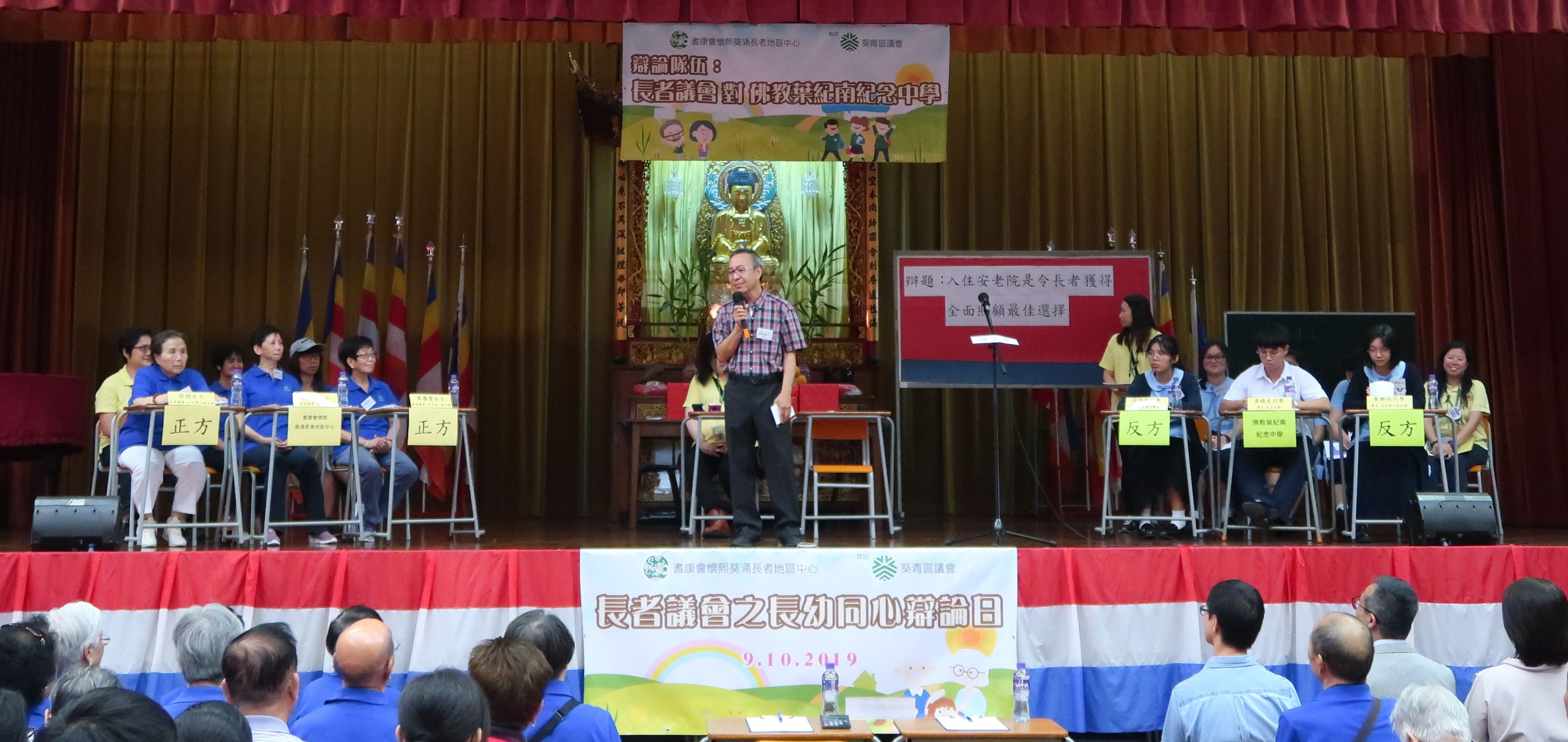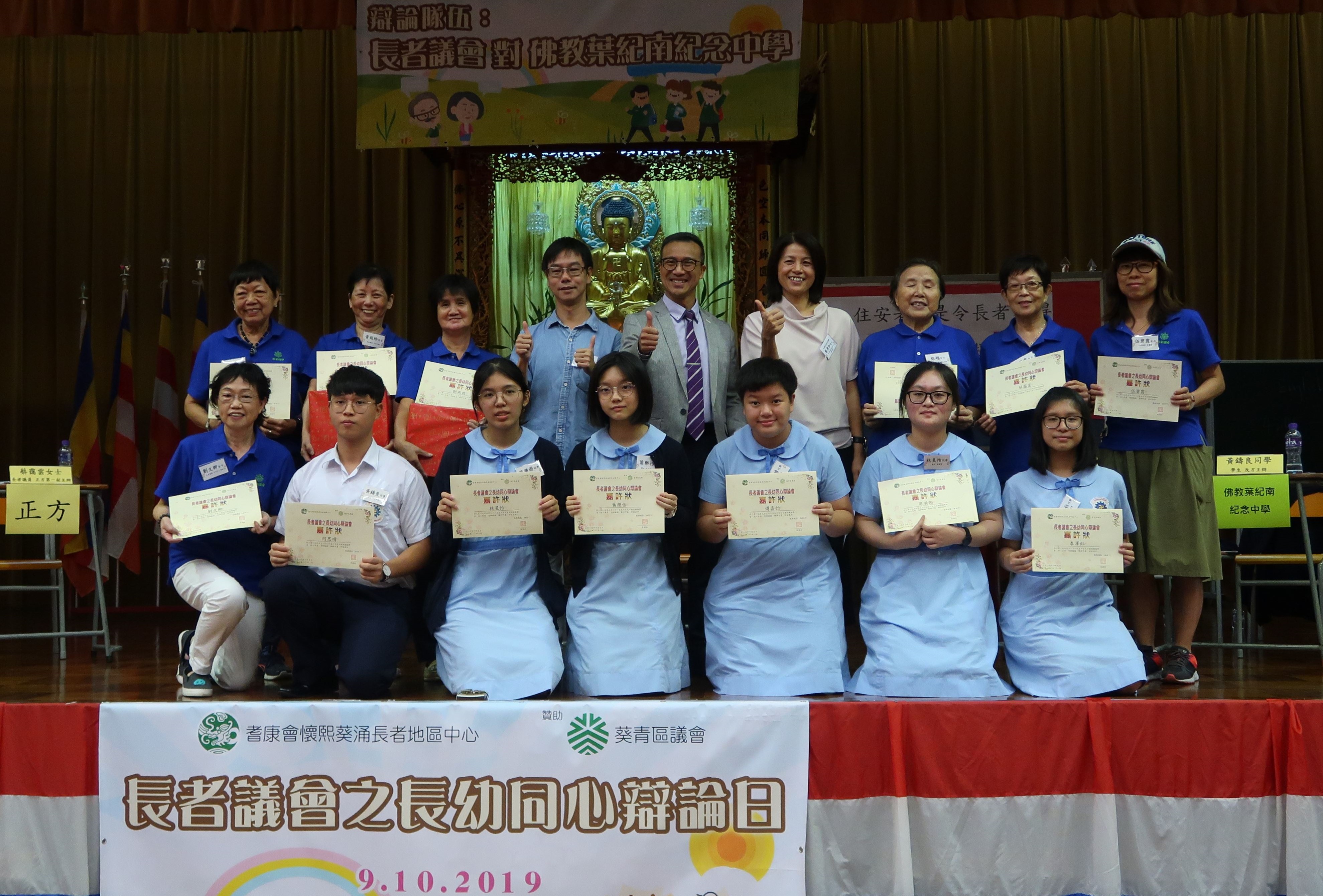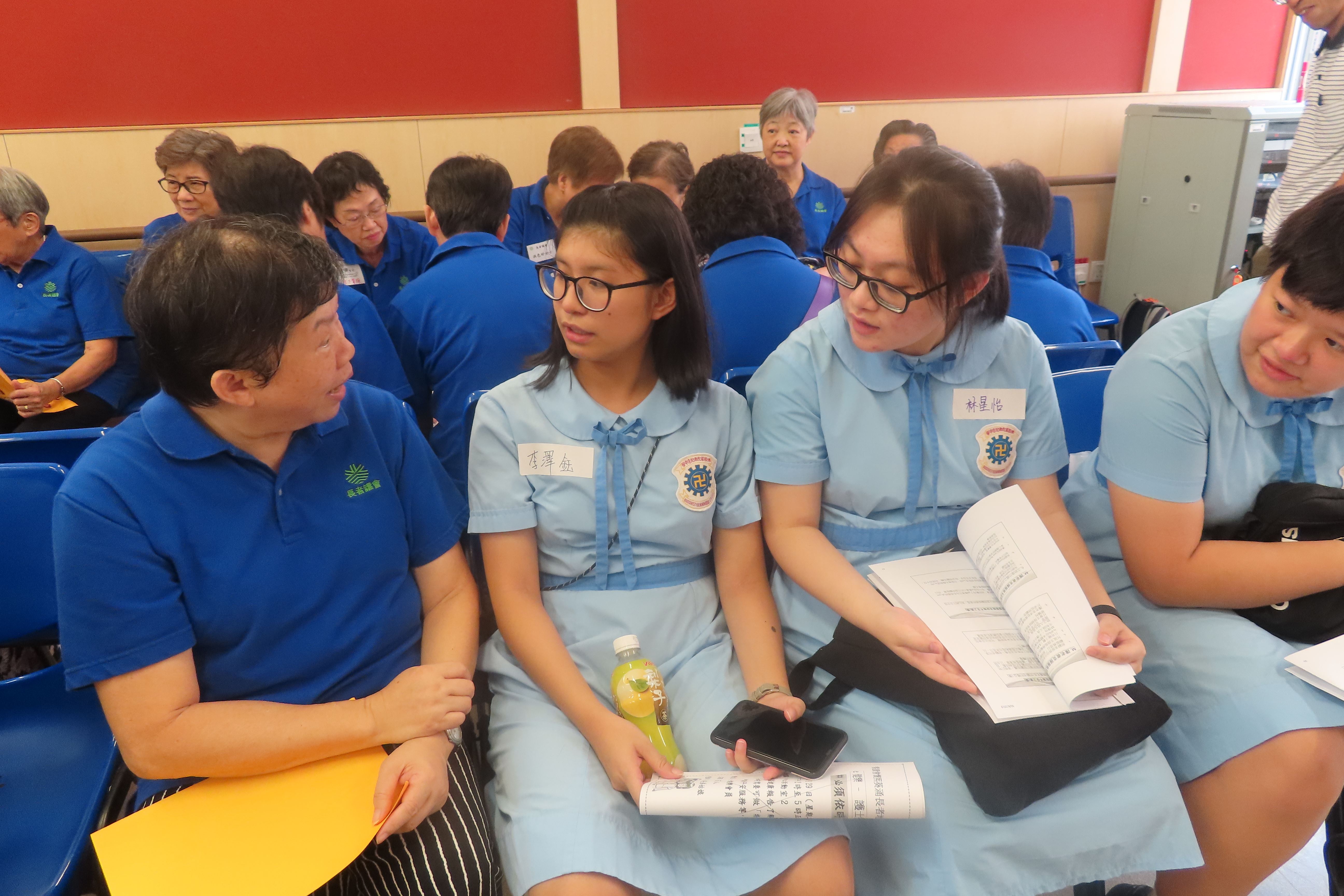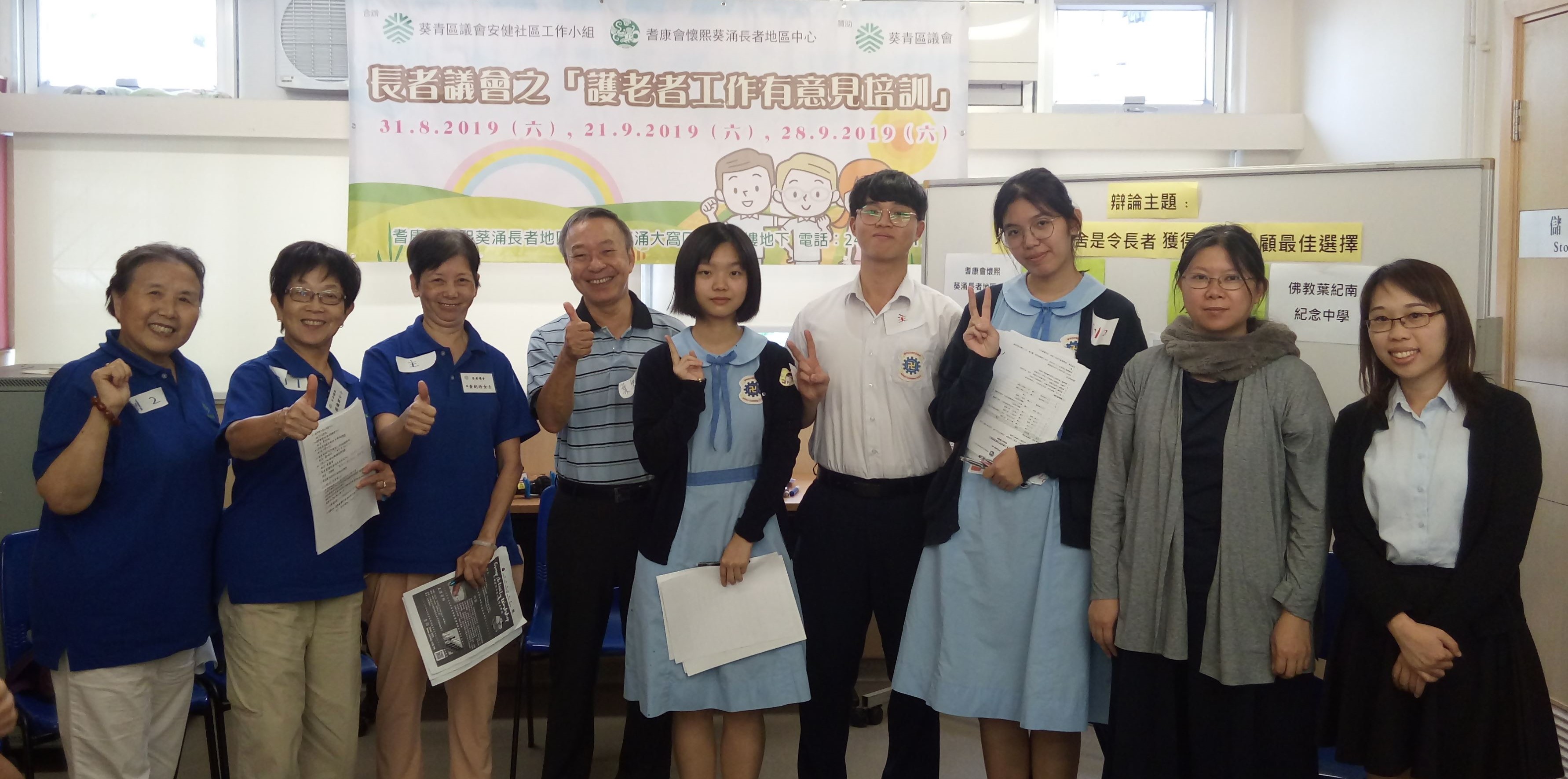|
 Recently, I have joined a very meaningful activity at school. It is called ‘A Debating Meeting with the Youths and the Elderly’. As self-explanatory, this activity is for a group of the elderly with students to conduct a debate competition, and the motion is ‘Living in the elderly homes is the best choice for the elderly to receive comprehensive caring’. On that day, all elderly members were full of energy. Old as they were, their debating skills impressed everyone, comparable to those of the youths; our students got well-prepared for the debate under the supervision of teachers. Recently, I have joined a very meaningful activity at school. It is called ‘A Debating Meeting with the Youths and the Elderly’. As self-explanatory, this activity is for a group of the elderly with students to conduct a debate competition, and the motion is ‘Living in the elderly homes is the best choice for the elderly to receive comprehensive caring’. On that day, all elderly members were full of energy. Old as they were, their debating skills impressed everyone, comparable to those of the youths; our students got well-prepared for the debate under the supervision of teachers.
 What is the debate result? It is unimportant at all because throughout the debate, students have an in-depth study and an understanding about the problems when the elderly move to the elderly homes. An important message has been delivered, and this is: we must not neglect the contribution to society made by the elderly before, and they lack concerns and care from society after retirement. Prior to organizing the activity, students have gone through training at the elderly centre. Despite the wide age gap over half a century among the competitors, during interactions and exchanges at the training, the elderly can have an opportunity to share their life experiences and lives after retirement; whereas every student listen and show their care. I believe such nurturing of empathy and compassion is greatly beneficial to students’ growth and manner. What is the debate result? It is unimportant at all because throughout the debate, students have an in-depth study and an understanding about the problems when the elderly move to the elderly homes. An important message has been delivered, and this is: we must not neglect the contribution to society made by the elderly before, and they lack concerns and care from society after retirement. Prior to organizing the activity, students have gone through training at the elderly centre. Despite the wide age gap over half a century among the competitors, during interactions and exchanges at the training, the elderly can have an opportunity to share their life experiences and lives after retirement; whereas every student listen and show their care. I believe such nurturing of empathy and compassion is greatly beneficial to students’ growth and manner.
 

Peter Drucker, an American management theorist, puts forward the ‘Wooden Bucket Theory’, pointing out that the capacity of a bucket made of wood with different lengths depends on the shortest piece of wood, but not the longest one. From the educational point of view, students have strengths and weaknesses in learning. Being an educator, we should try our best to improve their ‘weaknesses’ as they restrict them from further development in future.
 Nowadays, society focuses on academic results, and academic excellence is regarded as the key to success. However, Hong Kong’s students are often labelled as ‘high scores with low abilities’ in general public. There is the latest research conducted by a local university and a university in the UK discovering that Hong Kong children’s ability to attribute mental states to others (Theory of Mind) is much worse than that of the UK. Is this the ‘weak point’ of students in learning? Paying no attention to cultivating their sympathy means that they will face many difficulties in getting along with others in future. Nowadays, society focuses on academic results, and academic excellence is regarded as the key to success. However, Hong Kong’s students are often labelled as ‘high scores with low abilities’ in general public. There is the latest research conducted by a local university and a university in the UK discovering that Hong Kong children’s ability to attribute mental states to others (Theory of Mind) is much worse than that of the UK. Is this the ‘weak point’ of students in learning? Paying no attention to cultivating their sympathy means that they will face many difficulties in getting along with others in future.
Generic skills and interpersonal relationship are essential in the twenty first century. We should not forget to nurture children’s sympathy and compassion while striving excellent results at the same time.
Mr. So Ka Leung
Principal
|